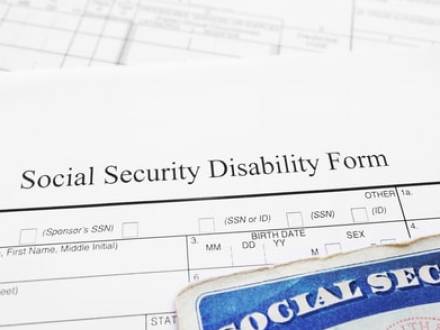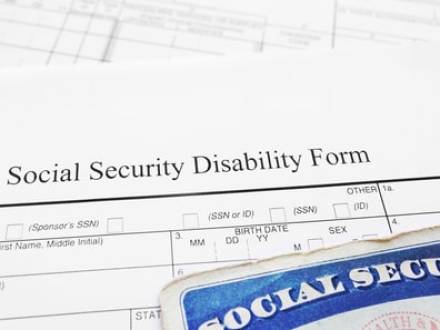Principal Office Located at 1424 Gables Court, Plano, TX 75075
Call Today For a Free Case Evaluation
Recent Blog Posts
Can I Get SSDI Benefits if I Never Worked?
 Social Security Disability Insurance (SSDI) is a federal program designed to provide financial assistance to people whose disabilities prevent them from working. However, SSDI is funded through payroll taxes, so applicants typically need a work history in which they paid into the Social Security system to be eligible. SSDI is not typically made available to people who never worked, but other options, such as Supplemental Security Income (SSI), may provide financial assistance for disabled individuals without a work history. To review your options, speak with a knowledgeable Plano, TX SSDI lawyer.
Social Security Disability Insurance (SSDI) is a federal program designed to provide financial assistance to people whose disabilities prevent them from working. However, SSDI is funded through payroll taxes, so applicants typically need a work history in which they paid into the Social Security system to be eligible. SSDI is not typically made available to people who never worked, but other options, such as Supplemental Security Income (SSI), may provide financial assistance for disabled individuals without a work history. To review your options, speak with a knowledgeable Plano, TX SSDI lawyer.
What Are the SSDI Work Credit Requirements?
When you pay Social Security taxes through employment, you earn something called a work credit, which is based on your yearly earnings. In 2025, a worker earns one credit for every $1,730 in wages, with a maximum of four credits per year. There is a minimum required number of work credits you must earn to qualify for SSDI, depending on your age when you become disabled.
How TERI Helps Terminally Ill People Get SSDI Quickly
 When you have been diagnosed with an end-stage illness, you should be free to focus on enjoying every moment you can. The last thing you should be worried about is how you will cover the cost of living. Some people prefer to keep working as long as possible to maintain a sense of normalcy. Others have already been too sick to work for some time before receiving a diagnosis and cannot wait any longer for disability benefits. When someone with a terminal diagnosis applies for SSDI, his or her application can be flagged as a TERI case and sent for expedited processing. Your application should be treated with urgency at every stage in the SSA’s disability determination process. This should mean that you can start receiving disability payments quickly.
When you have been diagnosed with an end-stage illness, you should be free to focus on enjoying every moment you can. The last thing you should be worried about is how you will cover the cost of living. Some people prefer to keep working as long as possible to maintain a sense of normalcy. Others have already been too sick to work for some time before receiving a diagnosis and cannot wait any longer for disability benefits. When someone with a terminal diagnosis applies for SSDI, his or her application can be flagged as a TERI case and sent for expedited processing. Your application should be treated with urgency at every stage in the SSA’s disability determination process. This should mean that you can start receiving disability payments quickly.
A compassionate Dallas, TX SSDI lawyer can help you through the application process and advocate on your behalf. Trying to go through the TERI application process alone can be strenuous, especially if your illness is progressing rapidly. A lawyer can help make sure things go as smoothly as possible.
Is it Hard to Get SSDI While Going Through Cancer?
 Cancer and the medicine used to treat it can be debilitating. Many people who are fighting cancer - or who have elected to stop treatment - require around-the-clock care and assistance with the normal activities of daily living - they certainly cannot keep working outside the home. However, it can be frustratingly difficult to get the Social Security Disability Insurance benefits you need as quickly as you need them. Cancer tends to come on very suddenly. Many people are unable to work due to the effects of chemotherapy or radiation within a week of diagnosis. Your need for benefits may be urgent, but delays in the SSDI application process are common. An experienced Dallas, TX SSDI lawyer can fight for you to receive the disability benefits you need while you focus on fighting cancer.
Cancer and the medicine used to treat it can be debilitating. Many people who are fighting cancer - or who have elected to stop treatment - require around-the-clock care and assistance with the normal activities of daily living - they certainly cannot keep working outside the home. However, it can be frustratingly difficult to get the Social Security Disability Insurance benefits you need as quickly as you need them. Cancer tends to come on very suddenly. Many people are unable to work due to the effects of chemotherapy or radiation within a week of diagnosis. Your need for benefits may be urgent, but delays in the SSDI application process are common. An experienced Dallas, TX SSDI lawyer can fight for you to receive the disability benefits you need while you focus on fighting cancer.
You Must Show That Your Disability Will Persist For a Year
To qualify as disabled for the purposes of receiving SSDI, you must be able to show that you will be unable to work due to your cancer for at least one year. Depending on the type of cancer you have, your individual prognosis, and the prescribed course of treatment, you may or may not meet this requirement. Some forms of cancer - especially when caught early - can be successfully treated with surgery or a short course of radiation. In these cases, a person might not be too sick to work for more than six or eight weeks rather than a full year.
Would a Medicare Suspension Affect My SSDI Benefits?
 In order to get and keep your SSDI benefits, you must follow your prescribed treatment plan. If there is a course of treatment that might restore your ability to work even part-time, you are required to comply with the treatment plan. This rule is to prevent people with perfectly treatable medical conditions from collecting SSDI instead of getting the treatment and returning to the workforce. Earlier this week, there were fears that Medicaid and Medicare benefits would be temporarily frozen. It is reasonable to have concerns about whether losing access to treatment, even for a short amount of time, might impact your SSDI benefits. Fortunately, being unable to afford treatment is not treated as a refusal to follow your prescribed treatment plan. You should consult a well-qualified Dallas, TX SSDI benefits attorney if you are concerned about how the refusal to follow treatment rule might affect your benefits.
In order to get and keep your SSDI benefits, you must follow your prescribed treatment plan. If there is a course of treatment that might restore your ability to work even part-time, you are required to comply with the treatment plan. This rule is to prevent people with perfectly treatable medical conditions from collecting SSDI instead of getting the treatment and returning to the workforce. Earlier this week, there were fears that Medicaid and Medicare benefits would be temporarily frozen. It is reasonable to have concerns about whether losing access to treatment, even for a short amount of time, might impact your SSDI benefits. Fortunately, being unable to afford treatment is not treated as a refusal to follow your prescribed treatment plan. You should consult a well-qualified Dallas, TX SSDI benefits attorney if you are concerned about how the refusal to follow treatment rule might affect your benefits.
How Common Are Denied Social Security Disability Claims?
 Almost four out of five applications for SSDI are denied the first time. Only one out of every five applicants will have their claim accepted without going through the appeals process or reapplying at least once. For those in the majority whose claim is initially denied, persistence is key. Most people who follow through with appealing their case will eventually succeed in getting the disability benefits they need. If your initial application for SSDI was rejected, do not be discouraged. Although having your claim denied can be frustrating, initial denials are extremely common and can frequently be overcome. You should work with an experienced Dallas, TX SSDI appeals attorney while you are appealing a denied claim.
Almost four out of five applications for SSDI are denied the first time. Only one out of every five applicants will have their claim accepted without going through the appeals process or reapplying at least once. For those in the majority whose claim is initially denied, persistence is key. Most people who follow through with appealing their case will eventually succeed in getting the disability benefits they need. If your initial application for SSDI was rejected, do not be discouraged. Although having your claim denied can be frustrating, initial denials are extremely common and can frequently be overcome. You should work with an experienced Dallas, TX SSDI appeals attorney while you are appealing a denied claim.
Common Reasons for Denials and How to Appeal Them
A few of the most common reasons why SSDI applications are denied include:
Will Receiving Gifts Impact My Social Security Disability Benefits?
 While receiving gifts - especially monetary gifts or gifts of great value - can be a joyous occasion, people who are reliant on Social Security benefits might also worry about whether it could affect their benefits. If you receive Social Security Disability Insurance (SSDI), you have nothing to fear. SSDI benefits are entitlements based on your work history and disability status, not your current financial resources and needs. Many SSDI recipients have substantial savings or assets from before they became disabled and had to stop working. SSDI recipients do not need to report gifts or inheritances to the Social Security office. However, if you are receiving Supplemental Security Income (SSI), a substantial gift or inheritance could impact your need-based benefits. An experienced Dallas, TX SSI lawyer can help you understand how gifts and inheritances might impact your benefits.
While receiving gifts - especially monetary gifts or gifts of great value - can be a joyous occasion, people who are reliant on Social Security benefits might also worry about whether it could affect their benefits. If you receive Social Security Disability Insurance (SSDI), you have nothing to fear. SSDI benefits are entitlements based on your work history and disability status, not your current financial resources and needs. Many SSDI recipients have substantial savings or assets from before they became disabled and had to stop working. SSDI recipients do not need to report gifts or inheritances to the Social Security office. However, if you are receiving Supplemental Security Income (SSI), a substantial gift or inheritance could impact your need-based benefits. An experienced Dallas, TX SSI lawyer can help you understand how gifts and inheritances might impact your benefits.
Obsolete Jobs Removed From Social Security Disability Lists
 When a person applies for Social Security Disability Insurance, one of the ways the administration will decide if he or she is eligible is by trying to find a job the applicant could do in spite of his or her disabilities. The SSA keeps a master list of jobs it uses for this purpose. This may seem helpful for everyone - people may be unaware of a job that is suited to his or her abilities and can often earn more by working than they would receive through SSDI. Up until recently, however, there was a glaring problem with this.
When a person applies for Social Security Disability Insurance, one of the ways the administration will decide if he or she is eligible is by trying to find a job the applicant could do in spite of his or her disabilities. The SSA keeps a master list of jobs it uses for this purpose. This may seem helpful for everyone - people may be unaware of a job that is suited to his or her abilities and can often earn more by working than they would receive through SSDI. Up until recently, however, there was a glaring problem with this.
Many of the jobs listed were completely obsolete and no longer a viable option. One man was famously denied because the SSA determined that he could work as a nut sorter - the problem being that there is no such job in modern times. As of this summer, a large number of obsolete jobs have finally been removed from the SSA’s master list. If you were previously denied because an obsolete job matched your abilities, a well-qualified Dallas, TX SSDI attorney can help you re-apply.
Can I Start a Business While Receiving SSDI?
 Social Security Disability Insurance (SSDI) benefits are a lifeline to Americans with disabilities who fall below a certain income level. However, the Social Security Administration (SSA) has strict guidelines about who can qualify for SSDI. These criteria include limits on income and work, making people who perform certain duties or earn enough income ineligible to receive SSDI benefits. A question often asked is if an SSDI recipient can start a business — or even go back to work at all — and continue enjoying benefits. The answer is yes, subject to certain conditions. To learn more, contact a Texas SSDI attorney for personalized legal advice.
Social Security Disability Insurance (SSDI) benefits are a lifeline to Americans with disabilities who fall below a certain income level. However, the Social Security Administration (SSA) has strict guidelines about who can qualify for SSDI. These criteria include limits on income and work, making people who perform certain duties or earn enough income ineligible to receive SSDI benefits. A question often asked is if an SSDI recipient can start a business — or even go back to work at all — and continue enjoying benefits. The answer is yes, subject to certain conditions. To learn more, contact a Texas SSDI attorney for personalized legal advice.
What Are the Work Guidelines for SSDI?
The SSA only offers SSDI to people with disabilities who bring in a certain amount of income, referred to as substantial gainful activity (SGA). For 2024, someone whose SGA is over $1,470 per month — or $2,460 if he or she is blind — is not eligible for SSDI.
Can Disabled Adult Children With Autism Receive SSDI?
 Autism spectrum disorder (ASD) is a disability that can affect daily life. For some adults with autism, everyday tasks and even independent living can be a challenge. Parents with adult children diagnosed with ASD sometimes need extra financial assistance to help provide the necessary care, particularly if their children live with them.
Autism spectrum disorder (ASD) is a disability that can affect daily life. For some adults with autism, everyday tasks and even independent living can be a challenge. Parents with adult children diagnosed with ASD sometimes need extra financial assistance to help provide the necessary care, particularly if their children live with them.
The Social Security Administration (SSA) sometimes provides Social Security disability insurance (SSDI) to Americans with disabilities, which include autism. A disabled adult child (DAC) with autism can sometimes receive benefits under his or her parents. Qualifying and applying for SSDI benefits is complex, however, which is why it should preferably be done under the guidance of a Texas SSDI attorney.
How Can a Disabled Adult Child Qualify for SSDI?
Not everybody qualifies for SSDI. To receive SSDI benefits, the applicant must have a sufficient work history and have been paying into the Social Security system. Young adults with autism, however, sometimes have trouble maintaining employment and do not have enough work history to qualify.
Can Veterans Qualify for SSDI and VA Disability Benefits?
 American taxpayers who suffer from certain disabilities may be eligible to receive Social Security Disability Insurance (SSDI). These are payments distributed by the Social Security Administration (SSA) to people whose conditions affect their ability to work. If the disability was incurred or aggravated during military service, the person may also be eligible to receive compensation from the Department of Veteran Affairs (VA). Since these benefits are unrelated, one does not affect the other. This means a veteran will not receive less SSDI payments if he or she is collecting VA benefits, and vice-versa.
American taxpayers who suffer from certain disabilities may be eligible to receive Social Security Disability Insurance (SSDI). These are payments distributed by the Social Security Administration (SSA) to people whose conditions affect their ability to work. If the disability was incurred or aggravated during military service, the person may also be eligible to receive compensation from the Department of Veteran Affairs (VA). Since these benefits are unrelated, one does not affect the other. This means a veteran will not receive less SSDI payments if he or she is collecting VA benefits, and vice-versa.
In this article, we will discuss the differences between SSDI and VA benefits and the eligibility requirements for each. For more details about receiving SSDI benefits, consult a qualified Texas SSDI attorney.
What Are the Differences Between SSDI and VA Disability Benefits?
The main differences between SSDI and VA payments lie in the fact that they are for distinct, unrelated purposes and are calculated differently. For example:

 972-671-9922
972-671-9922





